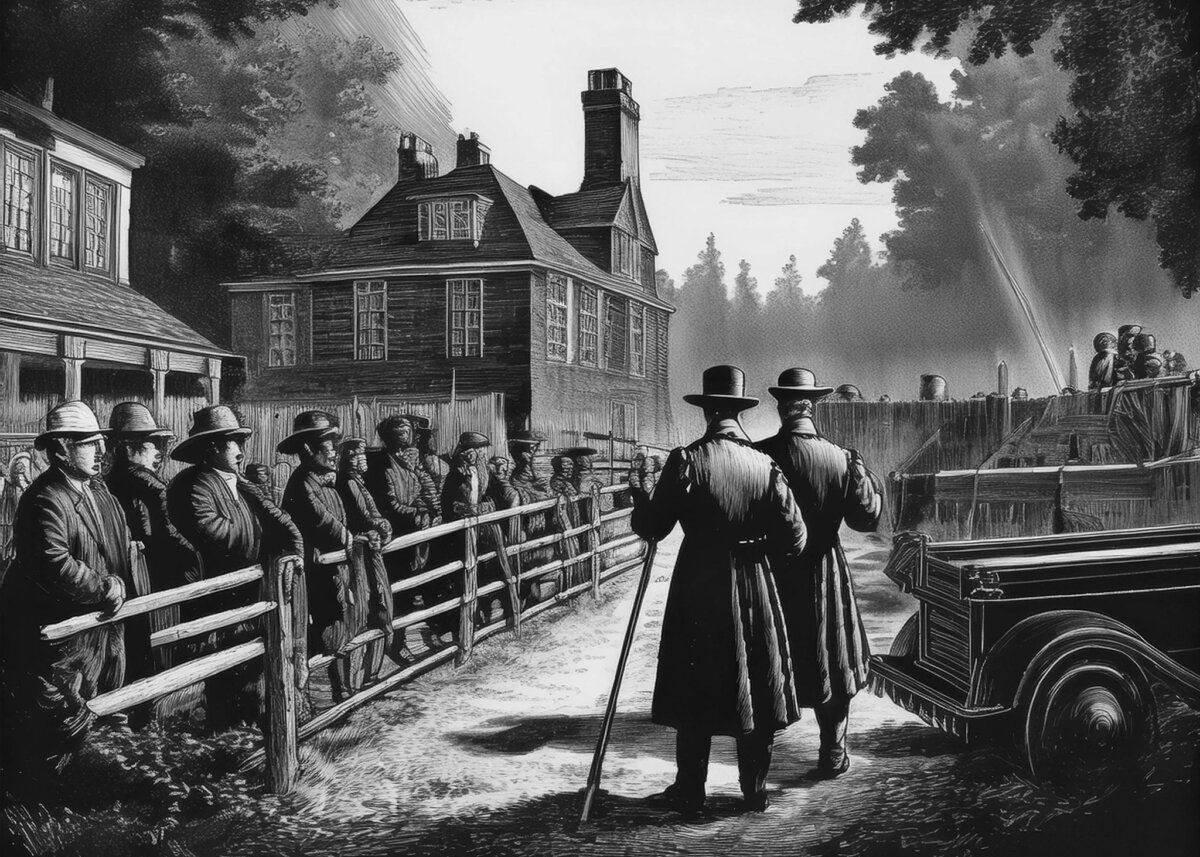Real estate transactions and property ownership come with a series of legal details, and one of the most important is understanding “restrictions in title.” Restrictions on title refer to conditions or limitations placed on the use or ownership of property, often embedded in the property deed or recorded publicly. While they may vary in scope and impact, restrictions are designed to maintain the character of a neighborhood or protect the rights of other property owners. This article explores the limits that can appear on a property title, how they work, and why they matter to property owners and potential buyers.
What Are Real Estate Restrictions in Title?
In real estate, title restrictions are limitations on how a property can be used, often outlined in the deed or title. These restrictions are legally binding and stay with the property regardless of ownership changes. While some restrictions are meant to preserve community standards, others protect environmental resources, historical value, or property rights. Restrictions vary widely and may apply to residential, commercial, or even undeveloped properties.
Restrictions typically fall into two main categories:
- Private Restrictions – Created by private entities like developers, homeowner associations (HOAs), or previous property owners.
- Public Restrictions – Government authorities, such as zoning laws, are imposed to serve public interests.
Types of Restrictions in Real Estate Titles
Understanding the different types of restrictions tied to a property is essential, as these can affect the owner’s rights and responsibilities. Here are some common types of title restrictions:
Zoning Restrictions
- Definition: Zoning laws are public restrictions local governments establish to control land use. They determine whether a property can be used for residential, commercial, industrial, or agricultural purposes.
- Impact: These restrictions influence what types of buildings can be constructed on a property and the activities allowed there. For instance, a commercial property can only be developed in a residential zone if zoning ordinances permit it.
Easements
- Definition: An easement is a right granted to another party to use a portion of the property for a specific purpose, such as utility maintenance or access roads. Easements are common in residential areas, where utility companies often need access to lay cables or repair lines.
- Impact: Property owners must respect easements and may not interfere with the granted use. For example, building a fence over a utility easement could violate the terms and lead to legal issues.
Covenants, Conditions, and Restrictions (CC&Rs)
- Definition: CC&Rs are private restrictions often enforced by HOAs to maintain uniformity and protect property values in a neighborhood or development.
- Impact: These can dictate specific guidelines, such as exterior paint colors, permissible landscaping, types of vehicles allowed to be parked outside, and even pet restrictions. Violating CC&Rs may result in fines or legal action from the HOA.
Deed Restrictions
- Definition: Deed restrictions are limitations placed in the property’s deed by a previous owner or developer, often intended to preserve the character of the property or area.
- Impact: These restrictions might limit certain activities, like prohibiting commercial businesses on residential properties or restricting further subdivision of the land. They can be permanent or set to expire after a specific period.
Historical or Environmental Restrictions
- Definition: Properties located in historic districts or near protected natural resources may be subject to special restrictions to preserve the cultural or environmental heritage of the area.
- Impact: Owners may face limitations on alterations, renovations, or any development that could compromise the historical or ecological integrity of the property.
How Do Title Restrictions Work?
Title restrictions are typically recorded in the county land records office. They are legally binding, meaning they transfer with the property whenever it is sold or inherited. The restrictions serve as a legal contract and are usually non-negotiable by new owners unless they are removed or modified through formal processes, often requiring legal or government approval.
Here’s a look at how title restrictions are enforced and how they affect property transactions:
Enforcement of Restrictions
Title restrictions are enforced by the governing authority, such as an HOA, local government, or other parties with an interest in the property (e.g., a utility company in the case of an easement). If an owner violates a restriction, they may face penalties, including fines, lawsuits, or forced reversal of any unapproved changes to the property.
Transferability of Restrictions
Since restrictions are recorded as part of the title, they are automatically passed on to new owners. Buyers should be aware of any title restrictions before purchasing a property, as they may affect the property’s long-term plans.
Due Diligence
Title companies and attorneys are crucial in reviewing title restrictions during property transactions. They conduct title searches to identify any existing limits, and buyers typically receive a report on any restrictions found in the title.
Why Do Title Restrictions Matter?
Title restrictions can significantly impact property value, use, and the potential for development, making them critical for buyers and owners. Here are some key reasons why they matter:
- Preserving Property Value: Restrictions, especially in residential areas, often aim to protect property values by maintaining consistent standards across the community. CC&Rs, for example, ensure that properties are kept in good condition and follow specific aesthetic guidelines, which can positively impact overall property values.
- Legal and Financial Liability: Ignoring title restrictions can lead to legal disputes and financial liabilities. For instance, building over an easement without permission can result in fines, removal costs, or legal battles.
- Influencing Purchase Decisions: Prospective buyers might avoid properties with strict title restrictions if they plan on making specific changes, like adding structures, opening a business, or renovating heavily. Understanding these restrictions in advance helps buyers make informed decisions aligned with their goals.
Challenges and Removal of Title Restrictions
Propertyetimes want to alter or remove restrictions to better suit their needs. Here are some challenges and potential methods for addressing restrictions:
- Legal Complexity: Title restrictions, especially easements or deed restrictions, are challenging to remove. Legal processes can be time-consuming and require court involvement, mainly if restrictions serve a public interest.
- Community or Government Approval: Changing CC&Rs or zoning restrictions may require approval from the HOA, local government, or neighborhood committees, all of whom may deny requests if changes conflict with existing standards.
- Easement Removal or Modification: In rare cases, an easement holder (such as a utility company) may agree to modify or remove an easement, mainly if it no longer serves a purpose. This process usually requires formal agreements and is legally binding.
Best Practices for Buyers and Owners
Understanding and complying with title restrictions is crucial for anyone buying or owning property. Here are some tips:
- Review Title Reports Carefully: Buyers should scrutinize title reports for any limits and seek legal guidance if restrictions could impact their intended property use.
- Consult with Professionals: Real estate attorneys and title companies are invaluable resources, as they can explain restrictions, identify potential conflicts, and guide buyers and owners in navigating them.
- Engage with HOAs and Local Authorities: For restrictions tied to HOAs or zoning laws, engaging early can help owners better understand the boundaries and processes involved in any potential changes.
Conclusion
Real estate restrictions in the title are essential to consider when buying, owning, or selling property, as they impact usage rights, legal obligations, and plans. By understanding the nature and purpose of title restrictions, buyers and owners can make informed decisions and maintain compliance, ensuring smooth property transactions and sustainable property values.
Learn more about our comprehensive title insurance services here.
Thank you for reading! If you enjoyed this article and want to explore more content on similar topics, check out our other blogs at Sonic Loans, Sonic Realty, and Sonic Title. We have a wealth of information designed to help you navigate the world of real estate and finance. Happy reading!
Understanding Chain of Title: Why History Matters in Real Estate
Title Insurance vs. Home Insurance: Understanding the Crucial Differences
The Evolution of Title Insurance: From 1868 to Today
How Technology Is Revolutionizing the Title Insurance Industry
Understanding Closing Costs: What First-Time Buyers Need to Know
What Exactly Is Title Insurance? A First-Time Buyer’s Complete Guide
What are the top home title questions in 2025
The 7 Most Common Title Issues That Could Derail Your Home Purchase
Understanding Zoning: The Framework That Shapes Urban Spaces











